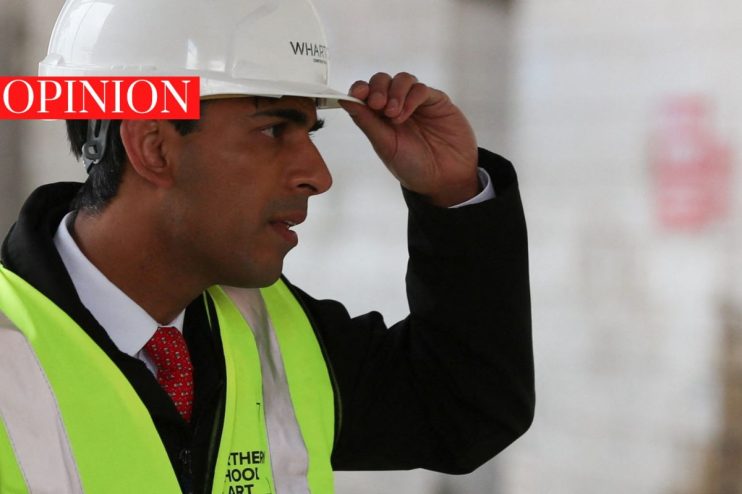Scrapping HS2 could jeopardise all of our efforts to level up cities across the UK

If Rishi Sunak scraps HS2 to balance fiscal targets for Treasury, he risks undermining the whole levelling up agenda, writes Adam Hawksbee
In 1836, Midland Bank opened its doors in Birmingham. Over the next century it acquired dozens of businesses, including the Central Bank of London, growing to become the largest deposit bank in the world. Today, Midland goes by a different name: HSBC Bank, after the international firm acquired it in 1992. In a poetic turn of events, HSBC announced in 2015 that it was moving its UK headquarters from London back up to Birmingham – starting to restore the city’s position as a global financial services hub.
HSBC’s board were sold the move on a big promise: HS2 would start to rebalance the UK’s economy, putting Birmingham at the centre of a bigger, faster, more reliable network from north to south. If rumours are true, what HSBC might actually be getting is an express shuttle from their new HQ to West London.
The British state is infamously bad at managing large scale infrastructure schemes. HS2 has become a totemic example. The spiralling costs and repeated delays are a national scandal, and a string of ministers have failed to get a proper grip.
But scrapping the whole project now would be an example of another famous characteristic of British statecraft: short term Treasury-driven decision making. For a decade, the project has suffered death by a thousand cuts — every time a route or stop is scrapped or delayed, we reduce the benefits of the line. The recent pause to work at Euston, driven entirely by the need to reprofile spending to meet the Treasury’s fiscal rules, has further increased the price tag and dented the all-important “benefit cost ratio”.
It is impossible to level up the country without improving transport links outside London and the South East. One of the biggest benefits of HS2 is that it unlocks Northern Powerhouse Rail, through new links to Manchester airport – facilitating faster and more reliable transport between dozens of struggling towns and underperforming cities. Responding to the Oakervee Review in 2020, Boris Johnson was evangelical about “high speed north” but was clear on its foundations: “None of that makes any sense without HS2.”
Businesses are already expressing concerns. After last week’s announcements on net zero, there is a risk that the consistency and predictability that underpins investment could be undermined. Andy Street, the West Midlands’ Conservative mayor, has spent years batting for his region on the back of HS2, as have mayors and councillors across the North. With the stroke of a pen, Whitehall could undermine all their efforts.
But the biggest challenge may lie with the public. If the scheme is significantly scaled back, the best case justification will focus on money saved that could be put to better use – particularly when families are struggling during a cost of living crisis. This argument is unlikely to cut through.
Instead, the decision will be viewed through the prism of what the pollster James Frayne has described as “anti-politics”. The loudest message in every focus group and poll is that the public is sick of Westminster. They think politicians are incompetent, dishonest, and incapable of sticking to long-term plans. This is the prism that a decision to scrap HS2 will be viewed through – and it could be difficult to come back from.
The government must act carefully, examining whether there is any way they can grip overrunning costs. They could dramatically boost the project’s upsides by proactively managing land around new stations to build tens of thousands of well-connected homes on brownfield land along with new local infrastructure.
It is unavoidable that this government will carry the can for some of the more recent failures of HS2, but they must weigh that against the long-term positive legacy once portions of the scheme are completed. Few voters cared about Crossrail, but they ultimately adored the Elizabeth Line.
At the heart of levelling up is an ambition for the towns and cities outside of London to regain their place at the heart of the national and global economy. For nascent companies in Leeds, Liverpool, Birmingham, Darlington, Barrow or Oldham to have a chance to become the next Midland Bank. This mission is almost quixotic in its ambition and devilish in its delivery – but it is the right one, economically, morally and politically. Cancelling HS2 without any serious backup plan to boost connectivity would be an unnecessary stumble on a path that is already steep and narrow.